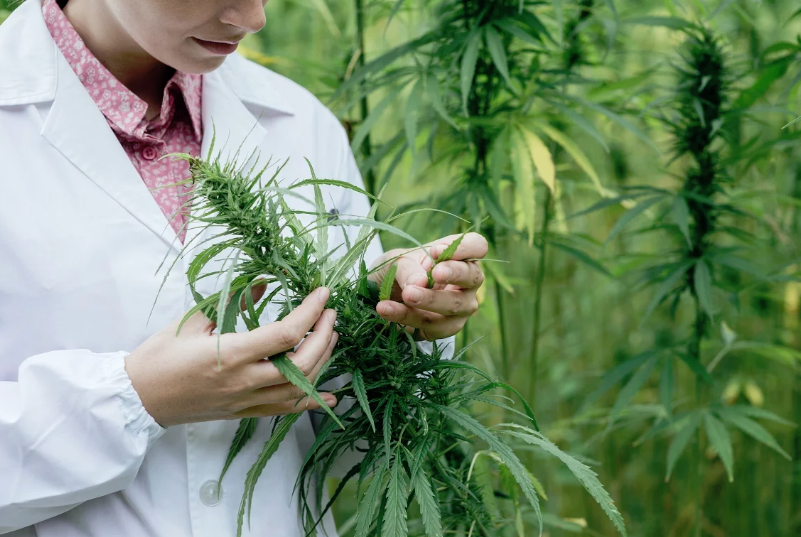Australia’s largest medicinal cannabis grower, which is backed by finance sector identities Barry Lambert and Chris Cuffe, has decided to stop production here and move to the US where it says the legal framework is much more favourable.
Ecofibre recently completed a $12 million capital raising with cash from Mr Lambert and Mr Cuffe. But it will close a business that has grown cannabis on 340 acres in the Hunter Valley in NSW – used for medical experiments on rats at the University of Sydney during the past year – and move to Kentucky in the US.
Mr Lambert, a BRW rich-lister who last year gave $34 million to Sydney University for research into medicinal cannabis, says a federal law passed this year that was supposed to legalise medicinal cannabis has so many restrictions that it is practically unworkable. He says the law goes well beyond what is required to prevent diversion to recreational use and Ecofibre has made a commercial decision not to apply for a licence under the new law.
“We have an Australian company, Australian seeds, Australian shareholders, but we have to go to America because of the legislation,” Mr Lambert said.
Ecofibre is expanding rapidly in the US market, where medicinal cannabis is now legal in over 30 states, including five which approved propositions to that effect at the last US election.
Black market
Mr Lambert says he has has gone public with his concerns because in Australia sick people looking for pain relief and treatment for diseases from epilepsy to multiple sclerosis contact him almost every day because they still cannot access medicinal cannabis. “It is driving people to the black market,” he says. Despite the legal uncertainty, Mr Lambert ‘s family is using cannabis extract to treat his granddaughter for a rare form of epilepsy.
The regulations passed in October require that a grower must prove in advance that they have a specific manufacturer lined up who is supplying for specific approved users. But this is a Catch 22 because it is almost impossible to get permission to use cannabis. In the US growers are licensed to operate anywhere in that country and can then look for markets, including for export to Australia.
Another problem with the Australian law, Ecofibre says, is that medicinal cannabis must be grown in costly high-security glasshouses. Ecofibre says this is a step back because it has been allowed by NSW and Queensland law for some time to grow cannabis outdoors on condition it only uses breeds that are very low in THC, the ingredient that makes people high. It would require complicated refining to turn the cannabis grown by Ecofibre into something that can be smoked for recreational purposes.
Mr Lambert says it is bizarre that low-THC cannabis for food or for fibre is legal but there are restrictions on growing exactly the same crop if it is theoretically for medicinal purposes. “The law takes a different approach based on the purpose for which it is is grown,” Mr Lambert says.
Ecofibre already has 500 acres under cultivation in Kentucky, where it is strongly backed by Republican Congressmen, including Senate majority leader Mitch McConnell, and former tobacco growers. It expects to plant 1200 acres next year and is also about to launch a branded low-THC cannabis product. It hopes for an initial public offering within two years.
A spokesman for the federal Department of Health said it had received several applications for licences under the new regulations and Ecofibre was free to apply. The department said that, under the Single Convention on Narcotic Drugs Act of 1961, Australia was obliged to prevent stockpiling of narcotic drugs. “As such, the Australian legislation is designed to prevent cultivation on ‘speculation’ that there will be a market. Hence the need for good business planning and contracts,” the spokesman said.
The department said the regulations on security could be relaxed for low-THC cannabis. “It would be possible to grow medicinal cannabis either indoors, in a glasshouse, or under field conditions,” the spokesman said.
At the moment no state governments have fully legalised use of medicinal cannabis, although the laws are afoot in Queensland and Victoria and the NSW government is doing three clinical trials that could open the way for certain approved drugs. However, because of Australia’s tight laws the cannabis used in the NSW trials on humans has to be imported from Canada and the Netherlands.
